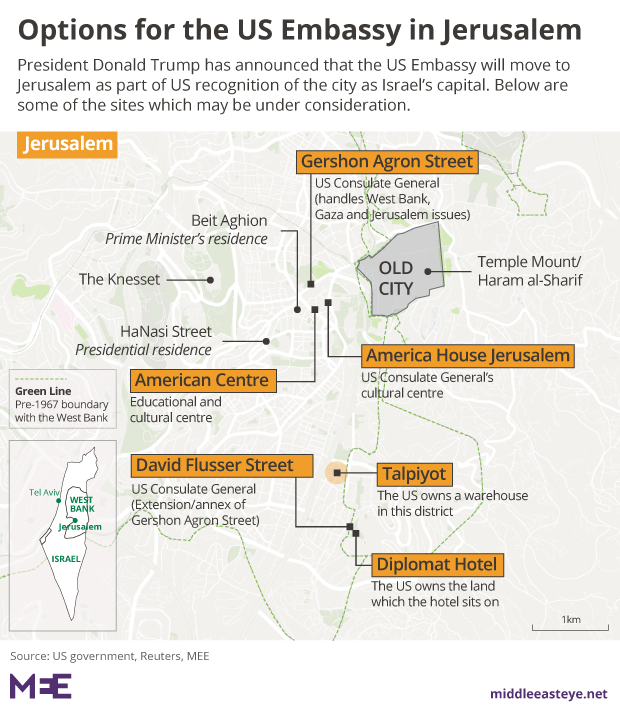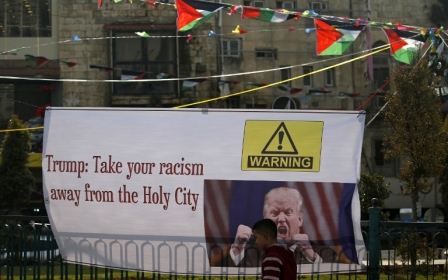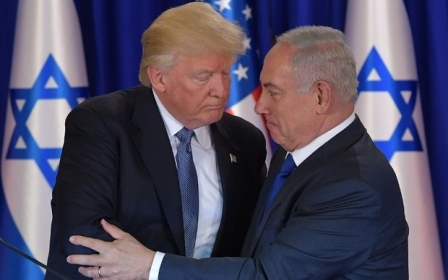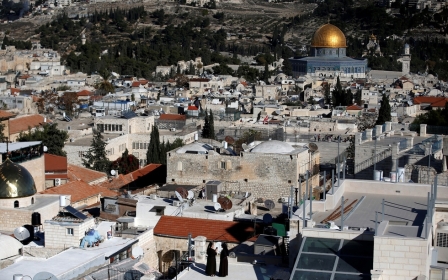US embassy moving to Jerusalem on Israel's independence day
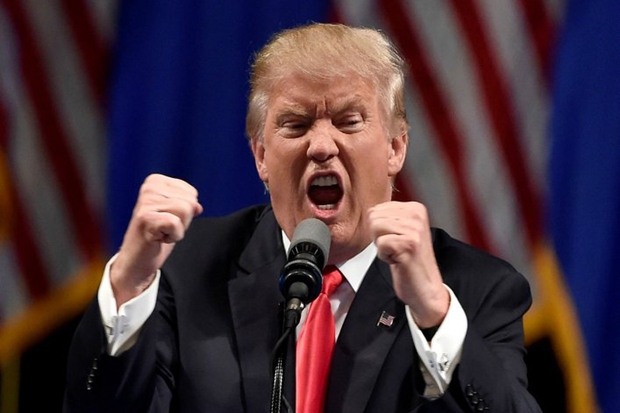
The United States plans to move its embassy from Tel Aviv to Jerusalem on 14 May, the 70th anniversary of Israel's independence, a US official confirmed on Friday.
In December, US President Donald Trump recognised Jerusalem as Israel's capital, and signalled Washington's intention to relocate its embassy. The move infuriated many of Washington's Arab allies and dismayed Palestinians who see as East Jerusalem as the capital of their future state.
The US schedule for the move appears to have sped up: during his visit to Israel last month, Vice President Mike Pence said that the embassy would move by the end of 2019.
There are several possible sites for the new embassy. The most likely plan would be to locate the embassy at a US facility in Jerusalem's south-eastern Talpiyot neighbourhood, currently used for consular affairs including passport and visa processing.
Officials said the US could initially retrofit a small suite of offices at the existing facility to accommodate current ambassador David Friedman and one or two top aides including his chief of staff.That would allow the administration to hang an "embassy" sign over the door and formally open it in time for Israeli independence day on 14 May.
Israeli congratulations
Soon after US officials announced the May date, Israeli Prime Minister Benjamin Netanyahu said that he is in contact with the US administration and will respond if and when an official American announcement is made on the planned embassy move to Jerusalem. Netanyahu is scheduled to visit the White House on 5 of March 5.
Israeli intelligence minister Yisrael Katz congratulated Trump in a tweet.
"There is no greater gift than that! The most just and correct move. Thanks friend!" Katz wrote.
Trump's Jerusalem announcement was rejected by 128 nations in a vote in the UN General Assembly in late December.
The overwhelming vote came during a rare emergency meeting to ask nations not to establish diplomatic missions in the historic city of Jerusalem. Israel has illegally occupied East Jerusalem since 1967.
Trump's announcement on 6 December led to ongoing waves of protests by Palestinians in the West Bank and Gaza.
Nabil Abu Rdainah, a spokesman for the Palestinian Authority president, Mahmoud Abbas, said that "this is an unacceptable step. Any unilateral move will not give legitimacy to anyone and will be an obstacle to any effort to create peace in the region."
Abu Rdainah said that the "only way to achieve peace, security and stability" was Abbas's proposal - outlined in his 20 February address to the United Nations Security Council in New York - that there should be an international conference to kick-start the stalled peace process with Israel, including a "multilateral mechanism" to oversee it.
Abbas is still in the United States after undergoing medical checks in Baltimore on 22 February, Abu Rdaineh said. He said the Palestinian leader would be leaving the United States on 24 February.
In Gaza, a Hamas official, Sami Abu Zuhri, said that "moving the American embassy to Jerusalem is a declaration of war against the Arab and Muslim nation, and the US administration must reconsider its move".
Clashes erupted in Gaza and the West Bank earlier on Friday, in a weekly protest against Trump's stance on Jerusalem.
A spokesman for the Gaza health ministry said 25 Palestinians were wounded by Israeli live fire during clashes along the fence with Israel in Gaza.
Palestinian health officials said at least 20 Palestinians, most of them in Gaza, have been killed in protests against Trump's decision since the 6 December announcement.
Middle East Eye propose une couverture et une analyse indépendantes et incomparables du Moyen-Orient, de l’Afrique du Nord et d’autres régions du monde. Pour en savoir plus sur la reprise de ce contenu et les frais qui s’appliquent, veuillez remplir ce formulaire [en anglais]. Pour en savoir plus sur MEE, cliquez ici [en anglais].


